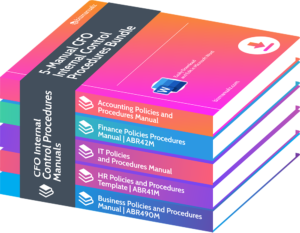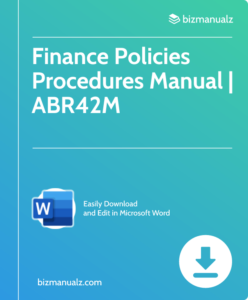What are IFRS Accounting Standards?

IFRS accounting standards are regulations and tips that tell companies how to report their financial information. They guarantee that financial records all over the world are consistent and can be compared. The International Accounting Standards Board (IASB) sets these standards, and independent global organization. Over 140 countries, including the EU, Australia, and China, use these standards. What are IFRS accounting standards?
IFRS Standards Accounting
Companies must give clear financial statements that show their business’ true position under IFRS standards. These standards cover a variety of topics like revenue recognition, measuring assets and liabilities, presenting financial statements, and disclosure needs.
IFRS standards have a principle-based approach which is different from other accounting frameworks. Instead of specific rules for certain transactions, IFRS focuses on principles that can be applied in different situations. This lets companies use their own judgement when applying the standards.
Fair value measurement has a special place in IFRS standards. Fair value is the cost to sell and asset or transfer a liability in and orderly deal between market players on the measurement date. By using fair value as a base for measurement, IFRS aims to give more significant details about and entity’s assets and liabilities.
Pro Tip: Know the IFRS standards if you do business globally or plan to expand internationally. Complying with these standards can improve the reliability and comparability of your financial statements worldwide.
Key Features of IFRS Accounting Standards
IFRS accounting standards have features that set them apart from other frameworks. These include a principles-based approach, global acceptance, increased transparency, comparability, and the use of fair value measurements.
The following table shows the key features of IFRS Accounting Standards:
| Feature | Description |
|---|---|
| Principles-based | IFRS is based on principles, not rules. |
| Global acceptance | Spread across 140+ countries. |
| Transparency | Must provide comprehensive and meaningful information. |
| Comparability | Easier to compare financial statements of different companies. |
| Fair value | Allows for use of fair value measurements. |
Furthermore, IFRS is focused on providing decision-useful information. This means it helps users make informed decisions based on accurate and reliable financial statements.
Pro Tip: Keep up to date with changes and amendments to IFRS to ensure compliance and correct reporting. Embrace the complexity of IFRS and give your auditor a good chuckle!
Benefits of IFRS Accounting Standards
The IFRS accounting standards offer various benefits for businesses and investors. They boost transparency and comparability in financial reporting, resulting in strengthened trust and faith in the global financial markets.
Advantages include:
- Enhanced comparability: IFRS enables consistent reporting across different countries, making it simpler for investors to compare the financial performance of companies in different places.
- Greater transparency: Companies must divulge more information about their financial positions with IFRS, making it simpler for stakeholders to evaluate risk and make informed decisions.
- Higher access to capital: By using widely accepted accounting standards, companies can attract investment from a wider range of investors, including foreign investors who might need financial statements prepared per IFRS.
- Improved risk assessment: IFRS provides stricter instructions for recognizing and measuring assets, liabilities, revenues, and expenses. This helps companies precisely assess their financial risks and take necessary actions to reduce them.
- Facilitated business combinations: IFRS has special guidance on business combinations, which simplifies the accounting treatment when companies join or purchase other entities. This makes it easier for businesses to broaden through mergers and acquisitions.
IFRS accounting standards benefit multiple types of organizations. They aid multinational corporations in combining their financial statements and help start-ups lure foreign investment by abiding to commonly accepted reporting principles.
To gain the most from IFRS adoption:
- Companies should offer training programs to ensure seamless transition and precise implementation of the new standards.
- Organizations should establish internal control systems that monitor compliance with IFRS requirements on a regular basis.
- Regular interactions with external auditors help maintain adherence to high-quality reporting standards.
- Businesses should stay updated with any changes or developments in the IFRS framework to guarantee consistent compliance.
Following these tips, businesses can completely leverage the advantages of IFRS accounting standards and stay competitive in the global marketplace. Mastering the difficulties of implementing IFRS accounting standards can be like attempting to solve a Rubik’s cube with blindfolded fingers.
IFRS Challenges and Implementation Considerations
Organizations transitioning to IFRS accounting standards must face several challenges and implementation considerations. These include ensuring compliance, training staff, and adapting systems. To better understand, let’s look at a key aspects table:
| Challenge | Description |
|---|---|
| Reporting Compliance | Accurate and timely financial reporting in line with IFRS standards. |
| Staff Training | Comprehensive training for employees on new accounting rules. |
| System Adaptation | Modifying existing systems to incorporate IFRS requirements. |
Ensuring compliance is a main challenge. Failure to do so can result in legal repercussions and damage to a company’s reputation. Staff must understand how the change affects their roles and responsibilities. System adaptation may require adjustments or new solutions.
To address these challenges, organizations should implement the following suggestions:
- Training Programs: Offer comprehensive training programs for theoretical and practical applications of IFRS standards.
- Cross-Functional Collaboration: Foster collaboration between finance teams and other departments during the transition period.
- Engage External Experts: Seek assistance from external consultants or advisors with expertise in IFRS implementation.
Following these suggestions will help organizations overcome challenges associated with the transition to IFRS accounting standards. Compliance, staff training, and system adaptation are key to a seamless shift towards the new reporting framework.
Comparison between IFRS and GAAP
IFRS and GAAP are two famous accounting systems that contrast in various ways. To better comprehend the distinctions, let’s take a look at the main differences via the chart below:
| IFRS | GAAP |
|---|---|
| International Financial Reporting Standards | Generally Accepted Accounting Principles |
| Measurement Basis: Fair Value Option (FVO) or Revaluation Model | Historical Cost Principle |
| Revenue Recognition Criteria: recognize revenue based on performance obligations | recognize revenue when it is realizable or earned |
| Inventory Valuation: uses average cost, FIFO, or specific identification | uses lower of cost or market |
| Consolidation: Risks and Rewards determine control | majority ownership determines control |
Also, IFRS has a principles-based approach, while GAAP relies on specific rules. This enables more flexibility when interpreting IFRS, compared to GAAP’s strict following of regulations.
To illustrate the effects of these discrepancies, let’s consider a real case. A multinational company used to prepare its financial statements according to IFRS for many years. However, due to industry takeovers that mainly reported under GAAP, they decided to switch. This transition resulted in hefty adjustments and restatements of past financial data, proving difficult and time-consuming for their finance team.
In the coming future of IFRS accounting standards, get ready to be astounded by the evolution of numbers and principles that make even calculators question their own purpose.
Future Developments and Evolution of IFRS Standards
The realm of accounting is ever-changing – that includes IFRS, too. Looking ahead, there are various advancements expected in this area.
One key development is further convergence between IFRS and GAAP. While progress has been made, there are still differences that require attention. The goal? To make the two sets of standards more alike, and provide a unified approach to financial reporting.
Transparency and disclosure will also be a major focus. Users of financial reports will get more useful, relevant info to help them make decisions. Non-financial data, such as ESG factors, will be especially emphasized for insight into a company’s long-term prospects.
Technology will keep playing a huge role, too. AI and automation are ushering in digital financial reporting. This includes eXtensible Business Reporting Language (XBRL), which allows for standardization and analysis of financial data. By embracing tech, accuracy, efficiency, and accessibility will all improve.
Want to stay up-to-date? Continuous learning and professional development are crucial. That way, you’ll have the knowledge and skills needed to tackle the rapidly evolving world of IFRS. Even if you don’t understand accounting, you can still appreciate its importance in a global economy.
Importance of IFRS Accounting Standards in a Global Economy
IFRS accounting standards hold immense importance in today’s global economy. These standards provide a framework for financial reporting, leading to transparency and comparability across countries and industries. This boosts investor confidence and aids international trade.
Adopting IFRS accounting standards brings numerous benefits to companies.
- It enables efficient financial communication to stakeholders worldwide. Standardized financial statements allow investors to compare different companies more easily and make informed decisions.
Furthermore, implementing IFRS accounting standards bolsters financial information credibility. These guidelines eliminate ambiguity and subjectivity in reporting, thus improving transparency and reducing the risk of fraud or misrepresentation.
Embracing IFRS accounting standards also encourages consistency and harmonization in financial reporting. Since these standards are internationally recognized, multinational companies can consolidate accounts without having to deal with diverging accounting principles in different jurisdictions.
For businesses to reap the rewards of IFRS accounting standards, certain suggestions should be followed:
- Stay up-to-date: Changes or updates to IFRS accounting standards are frequent. Therefore, consulting reliable sources such as professional accounting bodies or attending relevant training programs is essential.
- Seek expert advice: Professional accountants or consultants with IFRS expertise can help with compliance and best practices in implementation.
- Train employees: Training employees on IFRS principles and guidelines is necessary for successful adoption. This ensures a solid knowledge base within the organization and consistent application of these standards.
By following these suggestions, businesses can fully leverage the benefits of IFRS accounting standards. This facilitates efficient communication, fosters credibility and promotes harmonization in financial reporting practices. Companies can therefore navigate the global economy with confidence and transparency.</p
Frequently Asked Questions

Q: What are IFRS accounting standards?
A: IFRS stands for International Financial Reporting Standards. These are a set of accounting rules and principles that dictate how companies should report and disclose their financial information.
Q: Why were IFRS accounting standards introduced?
A: IFRS accounting standards were introduced to create a common financial reporting language that can be understood globally. They aim to provide transparency, comparability, and reliability in financial statements across different countries and industries.
Q: Who uses IFRS accounting standards?
A: IFRS accounting standards are used by public companies in over 120 countries, including European Union member states, Australia, Canada, and several emerging market economies. Many multinational companies also choose to adopt IFRS voluntarily.
Q: How do IFRS accounting standards differ from local accounting standards?
A: Local accounting standards can vary significantly between countries, while IFRS aims to provide a single set of globally accepted accounting rules. IFRS focuses on principles-based standards, which require professional judgment and interpretation, whereas local standards may be more rules-based.
Q: What are the benefits of using IFRS accounting standards?
A: The benefits of using IFRS accounting standards include increased comparability of financial statements, improved transparency, enhanced investor confidence, and easier access to global capital markets. It also reduces the cost of preparing multiple sets of financial statements for multinational companies.
Q: Where can I learn more about IFRS accounting standards?
A: To learn more about IFRS accounting standards, you can refer to the official website of the International Accounting Standards Board (IASB), the governing body responsible for issuing IFRS. There are also various books, courses, and online resources available to gain a deeper understanding of IFRS.


















Leave a Reply